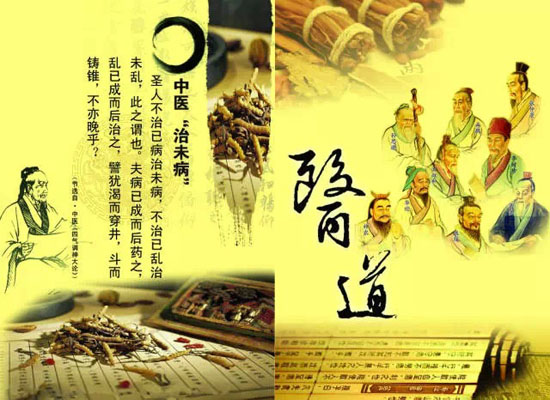Traditional Chinese Medicine (TCM) is a science and art dealing with the maintenance of health and the prevention, alleviation, and cure of disease. TCM emphasizes the important balance inside the body. If the important balance has been broke disorder and disease tend to follow, rebuilding balance with different herbs is the TCM’s way to cure disease. In fact, TCM is in an advantageous position to cure disease especially stubborn disease what we have not known enough about.
1. The Oldest and Most Sophisticated System of Natural Healing on Earth
Chinese Herbal Medicine has been used successfully for centuries in China to create radiant health and well being. Chinese knowledge of herbs dates back to 4000 years ago when Shen Nung’s Herbology of Chinese Medicine was compiled. Chinese herbal medicine is made up of flowers, seeds, fruits, leaves, branches, roots, bark, mineral and animal. It is important to use herbs grown in China rather than outside of their native environment in order to get the full benefit.

2. The Medicine of Harmony
The reasons Chinese herbal medicine is so popular are because of its emphasis on prevention as a healing method , and it is simply gentler and safer than chemical medications. Chinese herbs can also be taken to reduce the side effects of other medication. Herbal medicine can strengthen the body’s immune system while antibiotics weaken the system.
3. Each herb has its own specific characteristics.
In Traditional Chinese Medicine, the different characteristics of herbs are employed to treat diseases and rectify the hyperactivity of yin and yang (described below), thus curing the diseases and restoring health. The various characteristics of these herbs are properties, flavors, channel tropism, actions of lifting, lowering, floating and sinking, etc.
4. A balance of yin and yang represents a state of health and longevity.
The concept of harmony is central to Chinese medicine. Without it there wouldn’t be health. The determination of harmony in Chinese medicine is based on the universal theory of yin and yang. Yin-yang is simply a symbolic way of defining opposite forces that are at work in everything from the universe down to the molecule of the body. Yin and Yang represent the masculine and feminine, day and night, hot and cold, external and internal etc.To the Chinese, the human body is the cosmos in miniature. When imbalance occurs, diseases and weakness will result.
Chinese believe food and herbal medicines can correct yin-yang imbalances by supplementing the deficient element. One example of basic preventive care based on yin-yang theory is to adjust the diet according to the season. In summer, cooling yin foods should be increased in the diet, and in winter, more warming yang foods should be added to the meal.

![Diseases, Symptoms, tcm, [tcmwindow.com]](/uploadFile/adImg/2015/11/11/f5cbfcc0-4df5-4646-9b9a-f316651a0199.jpg)





